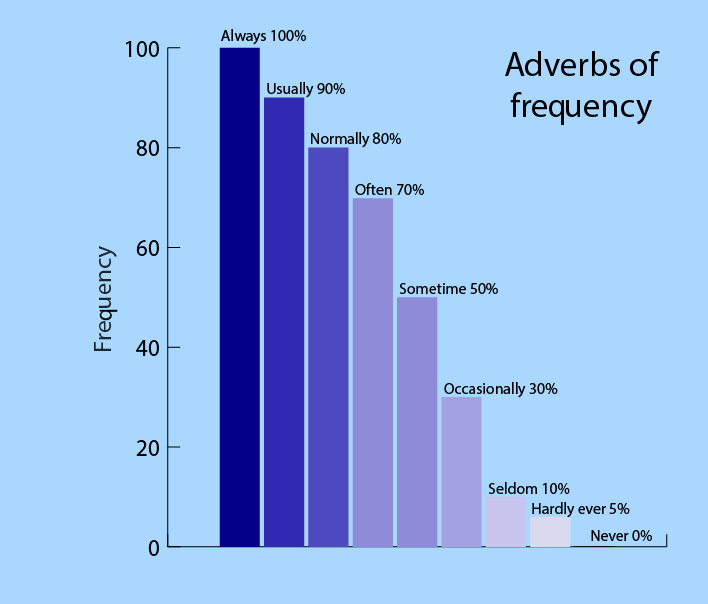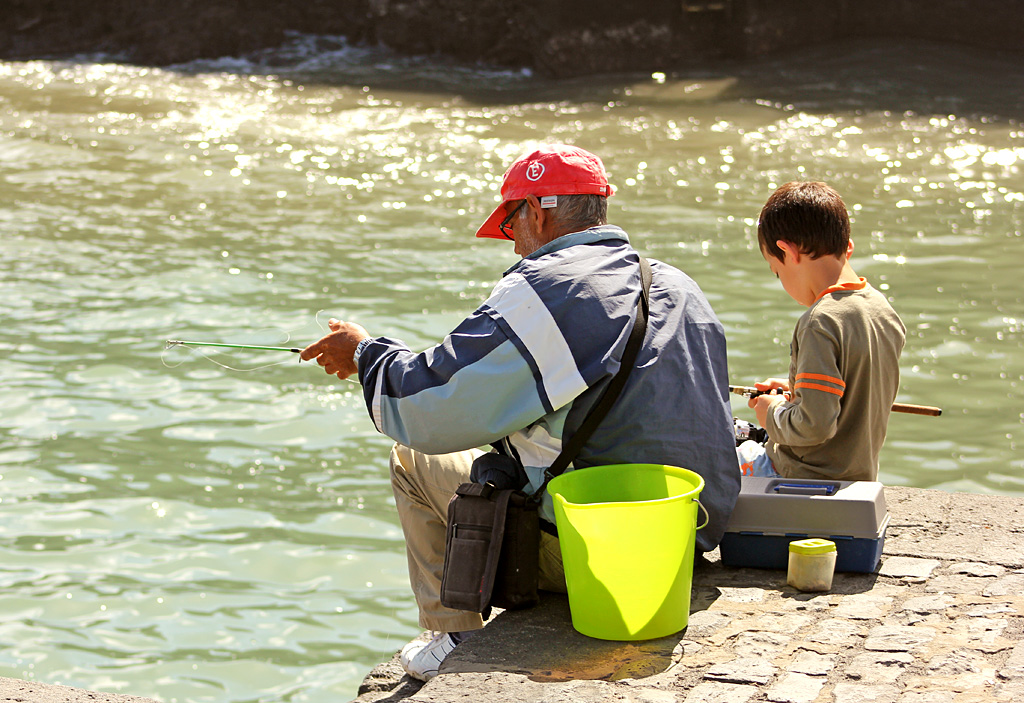Free time anecdotes
If you would like to share your anecdotes with your friends about your last vacations or your leisure time, could you be able without using words like yesterday, last week, last month, always, sometimes?
It would be impossible, wouldn’t it?
In this topic, you are practising the “adverbial phrases” and “adverbs of frequency”. These grammatical tools are used to express past times and their frequency.
It is recommendable that you follow the order given to understand the use of the structure clearly. Not only you are practising grammar, but you are also developing your speaking, reading, listening and writing skills.
At the end of the learning tasks, you are taking a test to verify how well you are using the new structure. Remember! The more you practice, the more you learn.
By the end of this topic, you will:
Use the adverbial phrases: ago, last year, yesterday, etc. and adverbs of frequency: never, already, ever, etc., based on several anecdotes about leisure activities, to express past times and their frequency.
Look at the following grammar information to understand the topic. It would be best if you made your notes to internalize the information provided.
To know more information, click on the following sentences:
An adverbial phrase states when something happened. For example:
• I went to the beach last week.
• You didn’t visit your friend yesterday.
• We traveled to Europe 3 years ago.
In a sentence, the adverbial phrases go either at the beginning and very after a comma or at the end with no comma.
• Last week, I went to the beach.
• Yesterday, you didn’t visit your friend.
• 3 years ago, we traveled to Europe.
Here there are some examples of adverbial phrases:
• Last year
• Last month
• Last week
• Last weekend
• Last July (any month of the year)
• Last Wednesday (any day of the week)
• Last time
• Last party (any other situation)
• Yesterday
• The day before yesterday
• Ago/before (a period of time before “ago/before”) - 3 days ago/before
We use adverbs of frequency to describe how frequent we did an activity.

An adverb of frequency goes before the main verb (except the verb to be)
• They always went to the mountains.
• We never swam in a river.
• Carl sometimes danced salsa.
An adverb of frequency goes after the verb to be.
• Kim was ocassionally in USA visiting her family.
• You were hardly ever out of your home.
• Lucy and I were usually travelling around Mexico.
We can also use the following adverbs at the start of a sentence:
Usually, normally, often, frequently, sometimes, occasionally
• Occasionally, I drank some tequila.
BUT we cannot use the following at the beginning of a sentence:
Always, seldom, rarely, hardly, ever, never.
We use hardly ever and never with positive, not negative verbs:
• She hardly ever ate tacos.
• They never played soccer.
We use ever in questions and negative statements:
• Did you ever taste a torta?
• I didn’t ever visit another country. (The same as: I never visited another country)
Now it is time to put into practice what we have learned, whenever you have doubt, you can always recheck the information as many times as you need.
Activity 1

You are going to read an anecdote about a person and his family’s vacation anecdotes.
When was the last time you went on vacation? How long has it been? When was the last time you went swimming?
First, scan the text, write down all the words you don’t understand and look them up in an English-English dictionary. Here are some options:
Click here for the reading
Now you will answer the following questions about the text. Choose True, False or Not mentioned. If necessary, please return to the reading to double-check the information.
Activity 2

When was the last time you did something out of the ordinary?
Now you will listen to a grandson talking to his grandpa about the activities he did when he was young as well as how often he did them. Please pay close attention to the expressions they use.


Marschalco, M. (2011). Grandfather and Grandson [photo]. Taken from https://goo.gl/yqB6G3
Activity 3

Do you fancy travelling?
What are the places you visited the last vacation?
How often did you visit those places last years?
You have gotten in touch with an old friend of yours who you used to travel with, a long time ago. He wants to know what places you have visited in the last ten years. Please write a message telling him those places you visited, what activities you did, and how often you did them in those places and finally how long ago you visited such locations. Try to be as detailed as possible.
Write a 160-180 words letter, including the adverbial phrases and adverbs of frequency when you narrate your anecdote.
Please, before you check your text, make sure it has the characteristics contained in the rubrics to evaluate it yourself.
Activity 4

Do you consider yourself a traveller? Are you the storyteller one among your friends or family? Is narrating stories your cup of tea? Do you like sharing your experiences with people?
You are part of “anecdotes blog”; today’s entry is to narrate past stories about different situations. Share yours, please!
Let’s test out your skills. To listen to the following situations, click on each one. Select one and record yourself narrating the anecdote using: adverbial phrases and adverbs of frequency.
Please, before you check your description, make sure it has the characteristics contained in the rubrics to evaluate yourself.
Example
One last step to reach mastery, my dear pupil, let’s do this!
Remember that we used adverbial phrases to state when something happened, and we use adverbs of frequency to describe how frequent we did an activity.
Choose the correct option that answers the following questions.
• English GrammarOnline in www.ego4u.com
• EnglishGrammar in www.englishgrammar.org
• British Council in www.learnenglish.britishcouncil.org